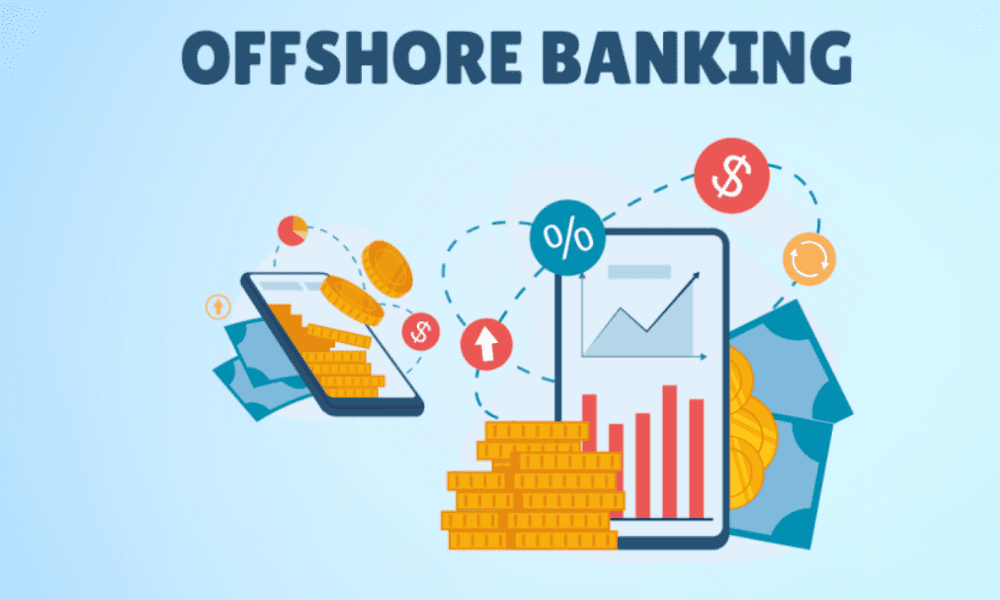Offshore Banking for Those Looking For Freedom, Privacy, and Asset Protection.
Offshore Banking for Those Looking For Freedom, Privacy, and Asset Protection.
Blog Article
How Offshore Financial Can Boost Your Financial Personal Privacy and Safety And Security
Offshore financial has actually arised as a practical choice for individuals looking for to boost their economic personal privacy and safety. By leveraging the one-of-a-kind advantages of overseas jurisdictions, clients can properly protect their properties from undesirable scrutiny and alleviate numerous financial risks. These banks frequently implement durable security actions, such as sophisticated security methods and multi-factor authentication, to secure sensitive details. The subtleties of offshore financial extend past mere privacy; understanding the full extent of its benefits and effects is important for anybody considering this financial strategy. What stays to be explored are the critical elements that can influence your success in this field.
Understanding Offshore Banking

Offshore financial institutions are commonly located in countries understood for their robust economic services and discretion regulations, such as Switzerland, the Cayman Islands, and Singapore. People and companies may seek offshore banking services for a range of reasons, including property defense, diversification of investments, and access to international markets.
Moreover, overseas financial can provide clients the capacity to handle numerous money and assist in international transactions with better ease. offshore banking. Nevertheless, the practice has likewise brought in scrutiny as a result of prospective abuse for tax obligation evasion and money laundering, bring about boosted regulatory oversight. Consequently, understanding the ins and outs of offshore financial is necessary for navigating both its benefits and challenges, specifically as global financial systems progress and federal governments look for higher openness in monetary deals

Benefits of Financial Personal Privacy
Financial personal privacy plays a substantial duty in the charm of overseas financial, as it supplies people and services a layer of defense for their properties and personal details. One of the primary benefits of improved economic personal privacy is the ability to secure wide range from unsolicited scrutiny, which can be especially advantageous for high-net-worth individuals and business owners. This personal privacy promotes a complacency, permitting clients to handle their financial resources without anxiety of invasion or undue influence.
Moreover, financial personal privacy can add to much better economic preparation. By maintaining sensitive info personal, clients can make strategic decisions without the pressure of external events. This discernment is vital in keeping the integrity of personal or company economic approaches.
In addition, offshore financial can help with worldwide deals with higher confidentiality. This is particularly useful for organizations engaged in worldwide trade, as it enables them to run without subjecting their financial activities to rivals or regulative bodies needlessly.
Eventually, the benefits of financial personal privacy in offshore financial prolong beyond simple privacy; they encourage individuals and businesses to navigate their economic landscapes with confidence and freedom. This flexibility is important in today's interconnected and frequently inspected economic globe.

Enhanced Protection Attributes
Just how can offshore banking improve the security of individual and company assets? Offshore financial institutions commonly offer robust security steps that can considerably secure clients' funds and delicate details. read more Among the key functions is progressed security technology, which safeguards on-line deals and data storage space, reducing the danger of unauthorized accessibility.
In addition, many overseas banks lie in territories with rigorous privacy regulations, using a layer of lawful security versus prospective property seizures or baseless examination. This legal structure not only safeguards client information but likewise makes certain that the financial institution sticks to high criteria of privacy.
Additionally, overseas banks typically use multi-factor authentication procedures, calling for multiple forms of verification prior to providing access to accounts. This added layer of safety and security prevents fraudulence and boosts general account defense.
In situations of geopolitical instability or economic unpredictability, overseas financial institutions can also supply clients with diversified property protection approaches. By holding possessions in several money or financial investment vehicles, clients can minimize direct exposure to residential risks. Collectively, these boosted security features make overseas banking an attractive option for those looking for to safeguard their funds properly.
Tax Benefits and Compliance
Offshore banking provides people and firms strategic tax advantages that can improve their general economic effectiveness. By utilizing overseas accounts in territories with positive tax obligation routines, customers can potentially decrease their tax obligations. Several overseas banks run in countries with low or zero tax on earnings, capital gains, and inheritance, permitting depositors to maintain a bigger section of their incomes.
Nevertheless, it is critical to highlight that participating in offshore financial calls for stringent adherence to tax conformity policies - offshore banking. International standards, such as the Common Reporting Standard (CRS) and the Foreign Account Tax Conformity Act (FATCA), demand that account owners report their foreign accounts to their home nations. Failure to conform can cause severe charges and lawful repercussions
To make the most of the advantages of overseas banking, individuals and businesses should make sure that they participate in clear tax obligation planning and keep detailed documentation. This includes understanding the tax responsibilities in both the overseas jurisdiction and their home nation. By doing so, clients can enjoy the financial advantages of offshore banking while continuing to be compliant with international tax obligation legislations, dig this consequently protecting their economic rate of interests and making sure long-term stability.
Choosing the Right Offshore Bank

Choosing the ideal offshore financial institution is a pivotal decision that can dramatically influence an individual's or company's monetary technique. To make an educated selection, several elements need to be considered.
First, examine the bank's jurisdiction. Different countries supply differing levels of regulatory oversight, personal privacy defenses, and political security. Opt for a territory understood for solid banking policies and durable lawful frameworks, such as Switzerland, Singapore, or the Cayman Islands.
Following, assess the bank's track record and financial stability. Study its credit scores ratings, reviews from other customers, and any type of background of financial transgression. A well-established organization with a strong performance history is crucial for securing your assets.
Additionally, consider the variety of solutions used. Some banks concentrate on wide range management, while others might concentrate on business services or financial investment chances. Make certain that the financial institution aligns with your details economic requirements.
Verdict
To conclude, overseas banking serves as a useful device for improving economic personal privacy More about the author and safety and security. By leveraging strict personal privacy regulations, advanced file encryption, and multi-factor authentication, individuals can effectively shield sensitive details. Moreover, the ability to diversify possessions across different money minimizes domestic threats, promoting higher monetary control. When implemented with adherence to tax obligation regulations and cautious selection of establishments, offshore banking ultimately adds substantially to a safe and confidential monetary landscape.
Report this page